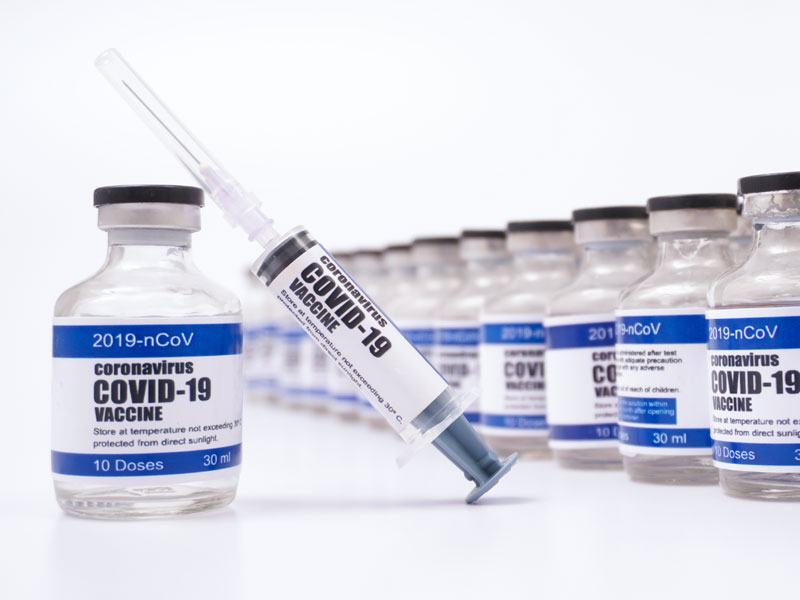
10th November 2020 First successful phase III trial of a COVID-19 vaccine The first successful phase III trial of a possible COVID-19 vaccine – BNT162b2 – has been announced by drug companies Pfizer and BioNTech, which is able to prevent 90% of infections. The mRNA-based vaccine candidate demonstrated high efficacy against COVID-19 in participants without prior evidence of SARS-CoV-2 infection, based on the first interim analysis completed this week by an external, independent Data Monitoring Committee (DMC). The vaccination process required two doses administered three weeks apart and involved 94 research participants. It uses messenger RNA (mRNA) which encodes part of the spike protein found on the surface of the SARS-CoV-2 virus, triggering an immune response against infection by the virus protein. The phase 3 clinical trial, which is ongoing, began on 27th July and has now enrolled 43,500 volunteers to date. As the research continues and more data arrives, the final efficacy percentage may vary. The DMC has not reported any serious safety concerns, but recommends the collection of additional safety and efficacy data as planned. These results will be discussed with regulatory authorities worldwide. "Today is a great day for science and humanity," said Dr. Albert Bourla, Pfizer Chairman and CEO. "The first set of results from our phase 3 COVID-19 vaccine trial provides the initial evidence of our vaccine's ability to prevent COVID-19. We are reaching this critical milestone in our vaccine development program at a time when the world needs it most, with infection rates setting new records, hospitals nearing over-capacity, and economies struggling to reopen. With today's news, we are a significant step closer to providing people around the world with a much-needed breakthrough to help bring an end to this global health crisis. We look forward to sharing additional efficacy and safety data generated from thousands of participants in the coming weeks." "This is a victory for innovation, science and a global collaborative effort," said Prof. Ugur Sahin, BioNTech co-founder and CEO. "When we embarked on this journey ten months ago, this is what we aspired to achieve. Especially today, while we are all in the midst of a second wave and many of us in lockdown, we appreciate even more how important this milestone is on our path towards ending this pandemic, and for all of us to regain a sense of normality."
The very high efficacy rate demonstrated so far has surprised many in the scientific community. This bodes well for regulatory approval, since regulators have previously said they would approve a vaccine with just a 50% effectiveness rate. "The efficacy data is really impressive," said William Schaffner, an infectious disease expert at Vanderbilt University Medical Center in Nashville, Tennessee, USA. "This is better than most of us anticipated. I would have been delighted with efficacy of 70% or 75%, so 90% is very impressive for any vaccine." These preliminary results have not been peer-reviewed for accuracy and are not yet published in a medical journal, but Pfizer and BioNTech confirm they are planning to submit the data from the full phase 3 trial for scientific peer-review and publication. Physically distributing the vaccine may prove to be an issue, especially in poorer or more remote regions, as it needs to be stored and transported at ultra-cold temperatures below −80°C (−112°F). Professor Sahin has said that BioNTech is researching possible ways of ensuring the vaccine can survive for up to five days at a normal fridge temperature of 4°C (7.2°F). If all goes well, then based on current projections, Pfizer and BioNTech expect to produce 50 million doses by the end of 2020 and up to 1.3 billion in 2021. Combined with research, development and scaling up of additional vaccines from other companies, COVID-19 immunity may be available to the vast majority of the world's population by 2024.
--- Follow us: Twitter | Facebook | Instagram | YouTube
Comments »
If you enjoyed this article, please consider sharing it:
|







